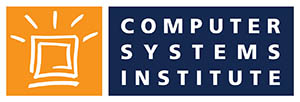By Snezana Stojilkovic; Chicago, Illinois
My friend Nemanja used to watch a lot of cartoons as a kid without English subtitles, and that’s how he learned English. When he grow older, he did the same with documentaries, movies and TV shows. He speaks fluent English, but if you ask him to explain why he uses the first conditional and not the second, for example, he would stare at you for a second, and answer: „I don’t know. But I know that I am right, I have a feeling. “And he would be right, because he acquired knowledge by listening the native speakers, just how we actually learn our native languages. But, at the same time, Nemanja’s spelling/writing skills are far from great, since he didn’t really spend much time writing in English. He always has to consult vocabulary or Google translate while he writes something. (Note that in my native language, Serbian, you write as you speak. Once you learn the alphabet, you can read anything, without wondering how to pronounce some words).
In contrary, another friend of mine Milena spent couple of years learning the language by studying the grammar rules. Give her the test, and she will not only be able to answer any question, she will exactly know why she answered that way, because she knows how to apply the rules. She is unmistakable in spelling and writing. Just like in math: learn the formula, and you can play with different numbers, as long as you want, you will have correct results. The same with English – pick up the grammar rules and you can play with different sentences and verbs. But, the problem is: Milena can’t speak English. She has so-called „passive knowledge of language“: she understands, she can write and read, but her speaking skills are terrible. She always struggles while debating in her head: „Should I use Present Perfect or Past Simple this time? “or „Let me see, eat, ate, eaten. The third one is correct, that’s what I am gonna use“. Oh, such a waste of precious time when she has to talk! For Milena, it is frustrating. Obviously, she doesn’t have a feeling, like Nemanja, or putting it this way: She doesn’t think in English. Yet. She thinks about English.
Does it sounds familiar? Have you ever been in a situation where you understand everything that is being talked about, but when it comes to you to respond – you freeze, unable to make one full sentence, panicking, already imagining how the person in front of you think you are not very bright person. And you know that you have so much to tell, to share, to explain. But you just can’t, all the words you know suddenly evaporate from your head.
I know the feeling, it happened to me more than once. But, I decided to learn something from that experience and to try to avoid it. How? Making some strategies and attacking the problem.
Now, I know we are coming from various countries, with different backgrounds, our native languages are not the same, our age might be different, but we all have something in common: we are all adults, trying to improve English. To train our brains so we can think in English. We are in the same boat. Let’s get to the destination together. Our ultimate goal, I believe, is the same: to became fluent in English.
I’ll share with you my ideas of how to learn and master this or any language.
First of all, set your goals!
If you know where you are going, you will never get lost! Plain and simple. Do you want to pass TOEFL, or you desperately want that scholarship, but the competition is so strong, so you need to come up and write better motivation letter to impress that committee? Not to mention writing essays. Night mare, right? Maybe you are hoping that job you want to apply for will be yours soon? You have diploma, you have experience, you just need one more semester in this school and you would be ready to start your career in the USA.
Whatever it is – be honest with yourself: What is your current level of English, what areas are you having problems with: speaking, writing, grammar, pronunciation, vocabulary, etc; how long do you think it might take for you to make improvements; what are you doing on a daily basis to help yourself? Are you enrolled in the right class? Where do you want to be in a year? What is your ability for learning? Do you need an hour of active learning, or it would take two? Do you learn by listening, reading or writing?
Answer all these questions, write them down, and make a plan for studying. But…
Don’t be too ambitious!
If you set extremely ambitious goals and you fail to achieve them you will lose the motivation for learning. It’s the same with exercising: you can’t lose 20 pounds in a week even if you run every day, so you can’t became fluent in any language in a week also. Be realistic. Persistent. You want results that will last, the extensive knowledge – be patient. It will happen, but not overnight.
If you have a reasonable plan in front of you, you will feel better with every step you take that leads you towards your destination. Feel free to use a pen and a piece of paper: write down what are you going to do daily, weekly, monthly. You can compare actual results you make with this initial plan.
For example, if you put down that in March you will read two books in English, you will memorize 20 new words, watch five movies without subtitles, write two short stories, you can actually measure your results. If in the end of this month you find out that you read one book, watched only two movies, and didn’t write anything, and could recall maybe 6 new words, that means that your plan was ambitious in the first place. Maybe it was overwhelming for you to handle two books, or the choice of the books was wrong, or you weren’t well organized. Either way, you need to come up with better plan for the next month. But, don’t panic. Just read the first and the second rule again.
If you do more that your plan predict – rise the threshold. Don’t be afraid, healthy ambition is desirable. And celebrate your dedication, because you did a good job!
Now, I will give you some time so you can make a plan for yourself. I will reveal other ideas in the following post. Be patient, that’s the key word :)






